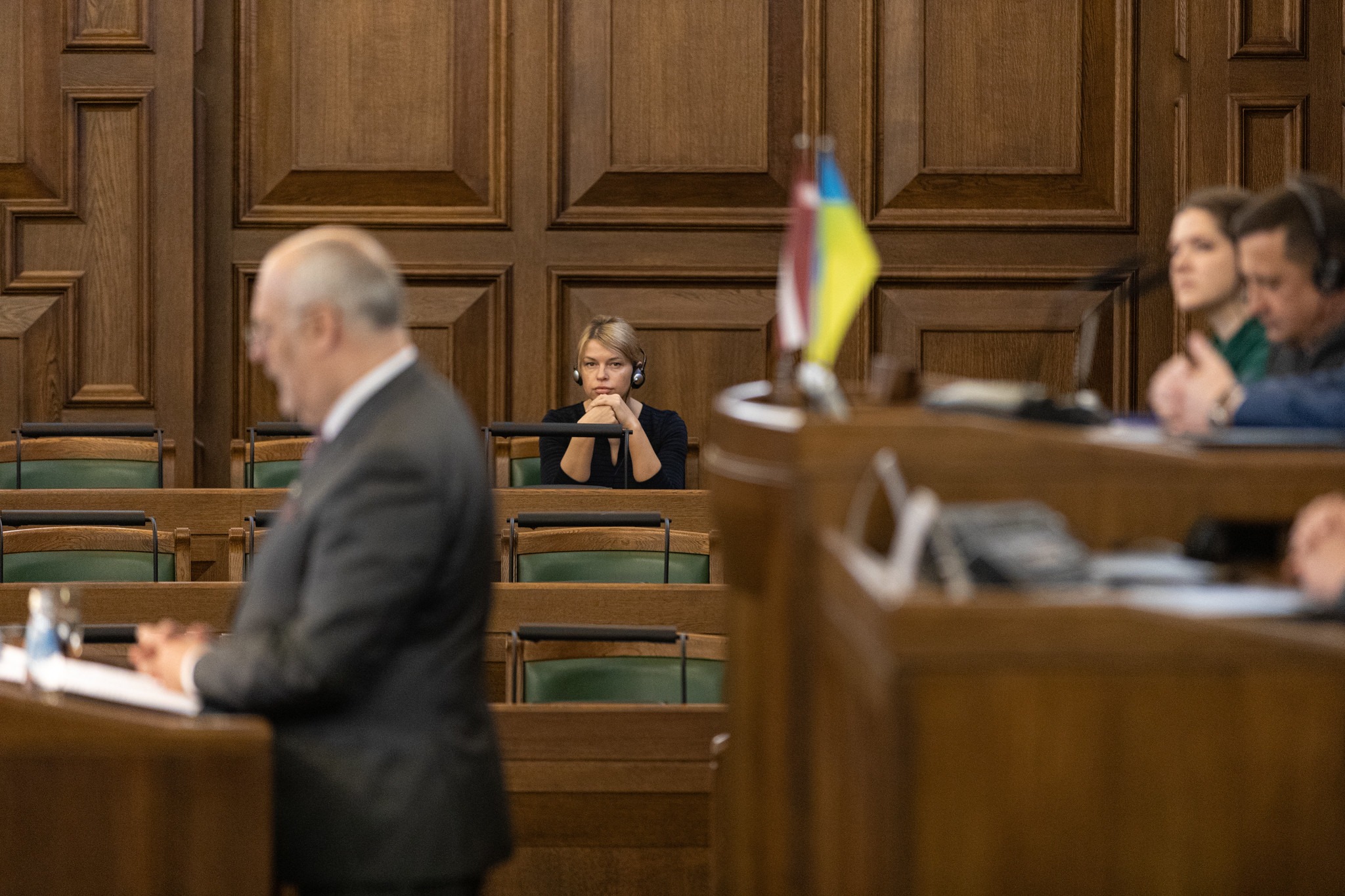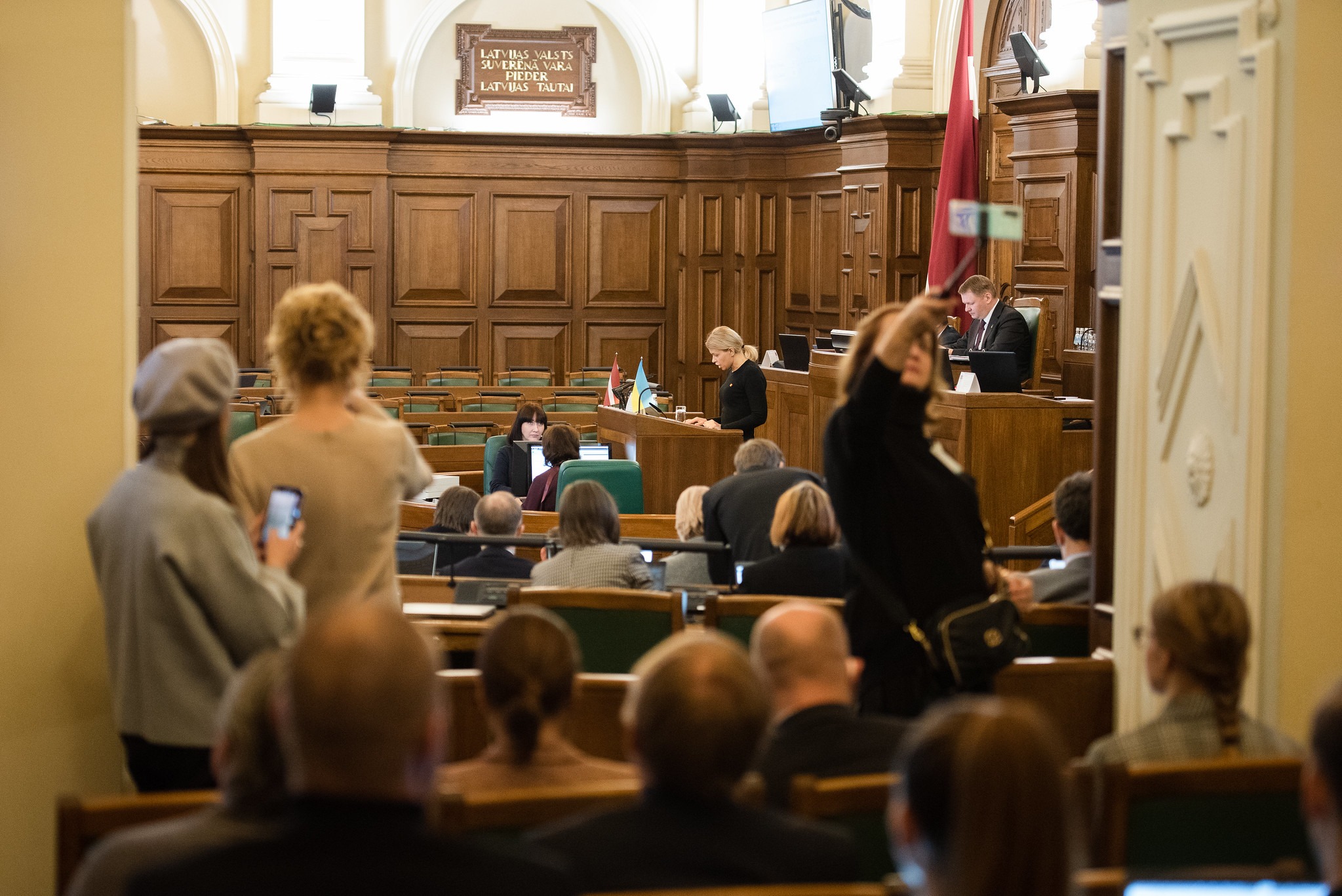Report
Latvia Monthly: Intensifying Pre-Election Rhetoric
Populist candidates like Grevcova and Brēmanis (Union of New Latvians) use emotionally charged content to highlight alleged government corruption and waste, often through unverifiable claims. Their videos on TikTok and Facebook generate more engagement than both Kremlin-aligned Telegram channels and rival populists like Roslikovs (Stability). These figures leverage outrage-driven messaging to erode trust in Latvian institutions and promote anti-establishment, anti-government sentiment – particularly among Russian-speaking audiences.
Weekly Reports
Latvia Weekly: The Rise of the Union of New Latvians
The previously fringe party Union of New Latvians, led by Glorija Grevcova and Rūdolfs Brēmanis, has gained significant social media traction and is now projected to potentially enter the Riga city council in June elections. Their viral content focuses on portraying Latvia as failing economically, alleging anti-Russian discrimination, promoting anti-globalist conspiracy theories, and positioning Grevcova as the authentic representative of Russian-speaking Latvians.
Read moreEstonia Weekly: Debate Over Expanding Surveillance Infrastructure
Pro-Kremlin commentators on social media have criticised the Estonian government for expanding surveillance infrastructure to disrupt dialogue and spread conspiracy theories. A heated debate has erupted over the use of Russian in medical institutions, sparking a backlash on social media and potential Kremlin propaganda.
Read moreLithuania Weekly: Protest Against the Planned Real Estate Tax
This past week, Kremlin-aligned outlets seized on a protest in Vilnius against the proposed real estate tax, using it as a platform for conspiracy theories and anti-government rhetoric. Alongside slogans portraying the tax as an attack on ordinary citizens, commentary amplified the coincidental timing of a fire at a nearby waste facility, suggesting it was a deliberate attempt to suppress protest turnout. The tax itself was framed as a corrupt scheme by political elites, furthering narratives aimed at eroding trust in Lithuania’s leadership and democratic institutions.
Read moreLatvia Weekly: Weaponizing Identity and Language
Pro-Kremlin Telegram accounts in Latvia push narratives that undermine Latvian sovereignty by portraying it as a Western puppet state with decadent values while glorifying the Russian imperial period. These accounts, including political candidate Roslikovs from the Stability party, also amplify claims of anti-Russian discrimination in Latvia, particularly around language rights, while promoting anti-government sentiment by portraying Latvian authorities as corrupt and exploitative.
Read moreMonthly Reports
Latvia Monthly: Intensifying Pre-Election Rhetoric
Populist candidates like Grevcova and Brēmanis (Union of New Latvians) use emotionally charged content to highlight alleged government corruption and waste, often through unverifiable claims. Their videos on TikTok and Facebook generate more engagement than both Kremlin-aligned Telegram channels and rival populists like Roslikovs (Stability). These figures leverage outrage-driven messaging to erode trust in Latvian institutions and promote anti-establishment, anti-government sentiment – particularly among Russian-speaking audiences.
Read moreEstonia Monthly: Narva’s Mayor Faces Threats Amid Rising Tensions
Katri Raik, mayor of the border city of Narva, has spoken candidly about the rising tensions in her community as Estonia strengthens its military presence near Russia. While some welcome the move, many locals remain wary. Raik has received multiple threats, including a death threat and public intimidation, on the same day news broke about a planned Estonian Defence Forces base in Narva. Her leadership highlights the delicate balance between national security and local identity in a city shaped by complex histories and geopolitical realities.
Read moreLithuania Monthly: Kremlin Media Exploits U.S. Military Incident to Undermine NATO
A tragic U.S. military incident in Pabradė, Lithuania, became fertile ground for Kremlin-aligned media in March 2025. What began as a local tragedy quickly turned into a disinformation campaign questioning NATO’s strength, Lithuania’s sovereignty, and the transparency of government institutions. Conspiracy theories flourished, amplifying distrust and fueling anti-Western narratives.
Read moreLatvia Monthly: Kremlin Propaganda Paints a Puppet and a Provocateur
Kremlin-aligned Telegram channels are deploying contradictory narratives to undermine Latvia’s sovereignty, portraying it both as a powerless Western puppet and an aggressive warmonger eager for conflict with Russia. By twisting Latvia’s NATO ties and defense initiatives, these narratives aim to erode trust in the Baltic state’s legitimacy, stir internal divisions within the EU and NATO, and justify Russian hostility in the region.
Read moreDon’t miss a story.
We publish stories that change laws, lives, minds and the world. Subscribe to our newsletter to get our investigations delivered to your inbox.







